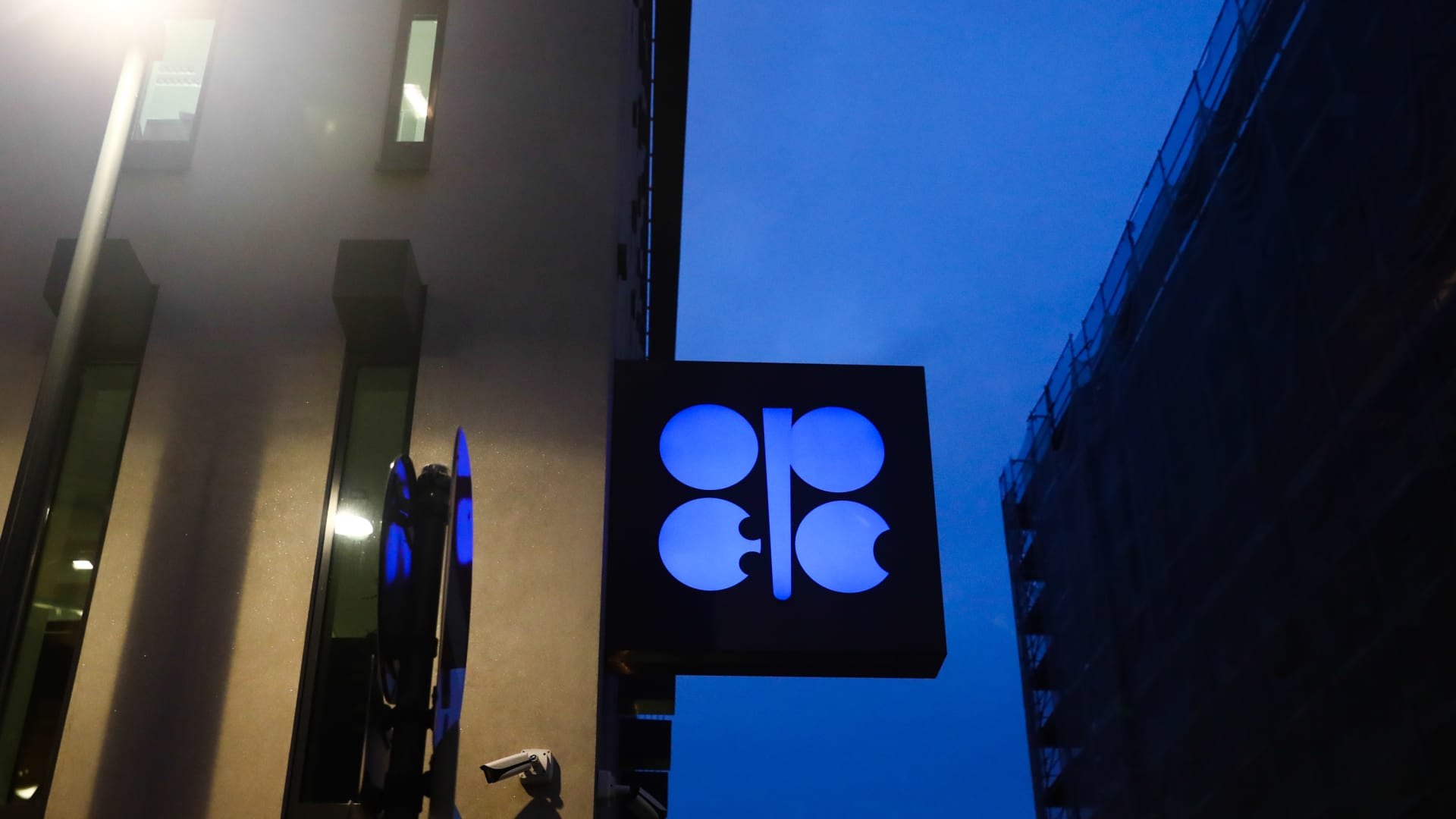
Haitham Al Ghais (pictured on the right) was appointed for a three-year term as OPEC’s Secretary-General on Jan. 3 earlier this year.
Yasser Al-zayyat | Afp | Getty Images
New OPEC Secretary-General Haitham Al Ghais said Wednesday that the influential producer group is not to blame for soaring inflation, pointing the finger instead at chronic underinvestment in the oil and gas industry.
“OPEC is not behind this price increase,” Al Ghais told CNBC’s Hadley Gamble.
“There are other factors beyond OPEC that are really behind the spike we have seen in gas [and] in oil. And again, I think in a nutshell, for me, it is underinvestment — chronic underinvestment,” he added.
“This is the harsh reality that people have to wake up to and policymakers have to wake up to. Once that is realized I think then we can start to think of a solution here. And the solution is very clear. OPEC has a solution: invest, invest, invest,” Al Ghais said.
Earlier this year, Kuwait’s Al Ghais was appointed for a three-year term as OPEC’s secretary general. He succeeds Nigerian oil industry veteran Mohammad Barkindo, who died at the age of 63 last month just days before he was due to step down from the organization.
Al Ghais’ comments come shortly after the influential producer group of OPEC and non-OPEC partners, an energy alliance often referred to as OPEC+, surprised market participants at its Aug. 3 meeting by announcing plans to add only 100,000 barrels per day from next month.
The group said that “severely limited availability of excess capacity” meant it was necessary to proceed with “great caution.”
It was seen as a snub to U.S. President Joe Biden, who during a visit to OPEC kingpin Saudi Arabia last month had called for the group to pump more crude to help the U.S. and global economy.
OPEC and non-OPEC producers are next scheduled to meet on Sept. 5.
OPEC’s relationship with Russia is ‘solid’
Asked whether OPEC, which produces roughly 40% of the world’s oil output, should shoulder the blame for surging energy prices driving up inflation, Al Ghais replied: “No, absolutely not. I mean it’s all relative, that’s number one.”
“Number two is OPEC is doing its part. We have been increasing production in line with what we see and a gradual mechanism that has been very transparent … We are doing everything we can to bring the market back to balance but there are economic factors that are really beyond OPEC’s control,” he added.
Oil prices have tumbled in recent weeks amid renewed concerns of a global recession and a softening demand outlook.
International benchmark Brent crude futures traded at $92 a barrel on Wednesday morning, down around 0.4%, while U.S. West Texas Intermediate futures stood at $86.25 a barrel, more than 0.3% lower.
Brent futures climbed to nearly $128 a barrel in the days following Russia’s invasion of Ukraine on Feb. 24 — part of an upswing in prices seen across all types of energy that pushed inflation to multi-decade highs.
OPEC and non-OPEC producers are next scheduled to meet on Sept. 5.
Jakub Porzycki | NurPhoto | Getty Images
On the energy alliance’s ties with non-OPEC leader Russia, Al Ghais said the group has a “solid” relationship with Moscow and it always seeks to separate politics from its market stabilizing objectives.
“First of all, if you look at history, if I may, such challenges are not new to OPEC and the OPEC history,” Al Ghais said, citing the Iran-Iraq war in the 1980s and the invasion of Kuwait in 1990.
“We try always in our meetings to separate the politics and the political aspects from what we do in terms of managing the market balance and in terms of what we do as OPEC+, I think the methodology is clear,” he continued.
“Russia’s leadership in supporting the declaration of cooperation has been clear since day one, since 2017. The relationship is solid in terms of managing the market.”
Asked whether this means that he trusts Russia, Al Ghais replied: “Yes.”
Who is Al Ghais?
A well-known OPEC figure, Al Ghais’ career in the global oil industry spans 30 years.
He has advised six Kuwaiti oil ministers on oil market developments in recent years and has previously been a leading member of Kuwait’s delegation to OPEC meetings.
Al Ghais served as Kuwait’s governor for OPEC from 2017 through to 2021 and was also a member of the group’s Internal Audit Committee.
